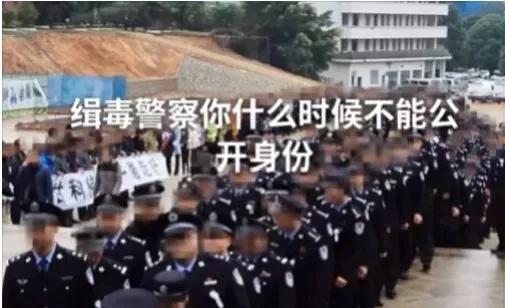Why can't the sacrificial anti-narcotics police be identified publicly?

Because the identity cannot be announced, for fear of retaliation by drug dealers, the anti-drug police have to be mosaiced when interviewed, and they have sacrificed even a tombstone. Because drug dealers will follow relatives and friends who go to worship to take revenge.
According to data from the Ministry of Public Security, in the five years from 2013 to 2017, 2,003 public security police officers across the country lost 2,003 lives in the line of duty and 25,000 were injured or disabled in the line of duty. That is, about every day a police officer dies in the line of duty. Among them, in 2016, a total of 362 anti-drug police officers were killed in the public security system, which is 4.9 times that of the general police.
What is the concept of 362 people? On average, every day, one anti-narcotics police officer is killed in the line of duty.
These anti-narcotics police officers could not show their faces before they died, and their tombstones were nameless after death.
So we absolutely cannot forgive the comeback of drug-addicted celebrities, and drug-addicted stars should be banned. If drug stars can be forgiven, the sacrificed anti-drug police officers will die too unjustly.
How many people will be misled by the brain-dead rhetoric that "drug addicts should be forgiven if they change"? It is recommended that brain-dead fans who say this kind of thing arrange to go to the front line of anti-drug to experience life.
Hats off to the heroes